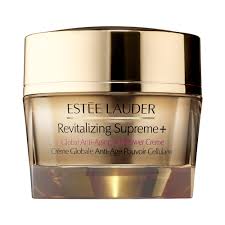Fragrances manufacturing continues to leverage on what has been perceived as ongoing urbanisation as many consumers are becoming more sophisticated in terms of their personal image and are giving priority to public perception.
Analysts say this is particularly true for women, who are the largest users of fragrances in Nigeria. Manufacturers of fragrance products are utilizing a wide range of attractive designs, premium quality ingredients, and packaging in order to boost their product portfolio.
Analysts say these manufacturers are redirecting their focus from metro cities to explore other markets which have huge potential for growth, with launches of a variety of affordable brands. This factor appears to be a common phenomenon among developing economies as analysts note that rising living standards of people across developing economies, coupled with their fast-paced lifestyle have resulted in the rapid adoption of personal care products, including fragrances.
According to analysts at Euromonitor International, factors driving growth in Nigeria include a growing middle class with higher disposable incomes, an increasing population of young people, middle-aged to older people and ongoing urbanisation, as well as the rise in white collar employment.
Globally, the scenario is not different as analysts hint that these factors are expected to augment the growth of the fragrances market in the near future.
The global market is projected to witness an impressive expansion at 6.2 percent Compound Annual Growth Rate (CAGR) during the forecast period 2017 to 2022, according to a recent study by Fact.MR. Soaps & detergents will remain preferred among products. However, their sales are anticipated to exhibit the lowest CAGR through 2022.
Cosmetics & toiletries are estimated to be the second largest product type segment in the global fragrances market.
Fine fragrances and household products will register the fastest expansion in the market during the forecast period, with fine fragrances anticipated to account for relatively larger revenue than the household products segment.
Analysts say premium brands will continue to grow strongly in Nigeria despite higher growth for mass fragrances, which are an attractive alternative for lower income urban consumers. Fragrances are widely considered to be prestige products and many consumers still prefer premium brand names, especially those that are well established and known in the market.
There are projections of fragrances sales boost owing to the rising number of young adults in paid employment and professional women. Analysts say while demand is mostly limited to middle to older aged people, younger consumers, including university students, are also increasingly purchasing fragrances.
Foreign brands have maintained a huge dominance until the recent and gradual shift from dependence on foreign products. Some analysts are of the view that the huge dominance of foreign brands and companies in the Nigerian business environment is gradually giving way to local brands following a gradual shift from importation of foreign brands to local manufacturing.
Companies are gradually building plants and producing within the country to compete with foreign brands. However, most of these products, analysts note, are targeted towards lower-income consumers, which form the bulk of the population. Evans Industries, like Orange Drugs, has shifted from just marketing imported products to the local manufacturing of consumer goods. Analysts attribute this to the enforcement of the ban on imported soap. Experts say the local companies still rely partly on foreign contacts for technical expertise.
The growing concern for quality as it relates to locally manufactured and imported brands which led to the inauguration in 2013 of a committee on the formulation of national quality policy, analysts say, was instrumental in bringing about the noticeably improved quality of local production.
Regulated in Nigeria by the National Agency for Food Drug Administration and Control (NAFDAC) with an overlapping function by the Standard Organisation of Nigeria (SON), fragrances manufacturing has nearly 4000 registered brands, ranging from fine fragrance, body care products to household products.
Information available to business a.m. reveals that many of the international well-known brands sold at reduced prices are not registered for sale by relevant agencies.
Market dynamics suggests that store-based retailing remains the dominant channel of distribution.
The increased construction of shopping malls in different cities across Nigeria has given rise to hypermarkets and supermarkets which have continued to gain the share of distribution in beauty and personal care. However, analysts say open markets still lead in terms of distribution, although this channel continues to lose share due to increasing modernisation of retail in Nigeria.
According to them, independent small grocery stores are seen as growing well due to their ability to adapt to a more modern retail environment. They argue that the convenience and ambience of stores offer middle- and high-income consumers a stress-free shopping experience compared with open-air markets, which are often crowded and unpredictable in addition to the specificity of prices and the absence of haggling which also make these stores attractive.
The leading company in fragrances in Nigeria in 2017, according to Euromonitor International, was Estée Lauder due to the popularity of the brand. They also note that brands like Tommy Hilfiger and DKNY, which are also well-known and have a prestige image were able to hold their own. According to them, these premium brands are widely distributed and have a long-standing presence in the country.
Puig ranked fourth within the highly competitive fragrances area in 2017. The company’s Paco Rabanne and Carolina Herrera brands are well-known, with Puig ranking first in premium men’s fragrances and fifth in premium women’s fragrances in 2017.
Within premium fragrances, Afnan Supremacy performed strongly between 2015 and 2017, with the recession resulting in consumers moving towards lower priced premium options. Such products have also been successful due to their utilisation of the Middle Eastern “oud” fragrance, which is increasingly popular among consumers for its strong, long lasting, scent.







